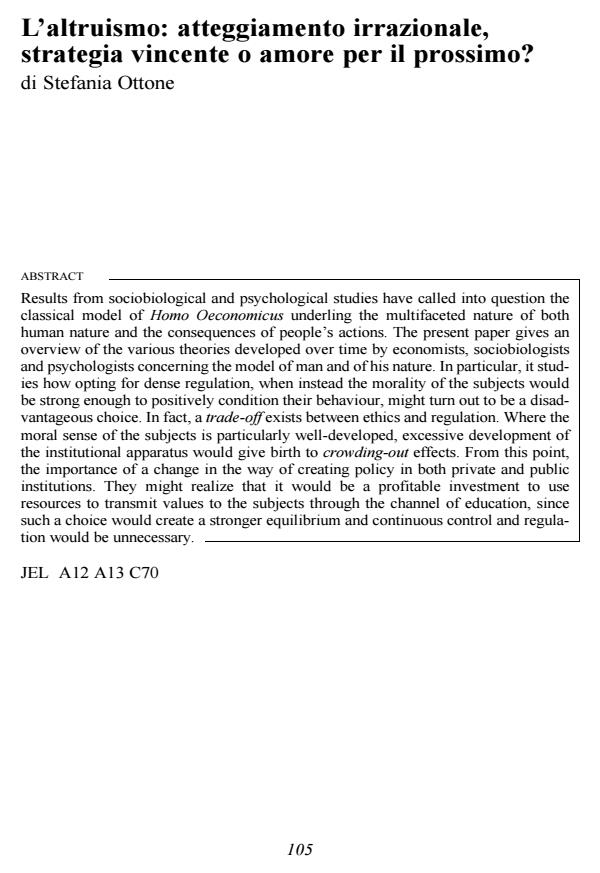L'altruismo: atteggiamento irrazionale, strategia vincente o amore per il prossimo?
Journal title ECONOMIA PUBBLICA
Author/s Stefania Ottone
Publishing Year 2002 Issue 2002/3
Language Italian Pages 17 P. File size 86 KB
DOI
DOI is like a bar code for intellectual property: to have more infomation
click here
Below, you can see the article first page
If you want to buy this article in PDF format, you can do it, following the instructions to buy download credits

FrancoAngeli is member of Publishers International Linking Association, Inc (PILA), a not-for-profit association which run the CrossRef service enabling links to and from online scholarly content.
Results from sociobiological and psychological studies have called into question the classical model of Homo Oeconomicus underling the multifaceted nature of both human nature and the consequences of people’s actions. The present paper gives an overview of the various theories developed over time by economists, sociobiologists and psychologists concerning the model of man and of his nature. In particular, it studies how opting for dense regulation, when instead the morality of the subjects would be strong enough to positively condition their behaviour, might turn out to be a disadvantageous choice. In fact, a trade-offexists between ethics and regulation. Where the moral sense of the subjects is particularly well-developed, excessive development of the institutional apparatus would give birth to crowding-outeffects. From this point, the importance of a change in the way of creating policy in both private and public institutions. They might realize that it would be a profitable investment to use resources to transmit values to the subjects through the channel of education, since such a choice would create a stronger equilibrium and continuous control and regulation would be unnecessary.
Stefania Ottone, L'altruismo: atteggiamento irrazionale, strategia vincente o amore per il prossimo? in "ECONOMIA PUBBLICA " 3/2002, pp , DOI: